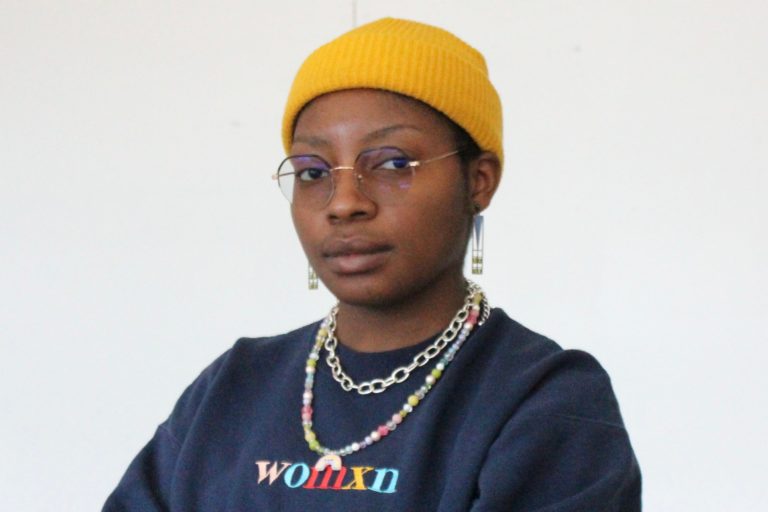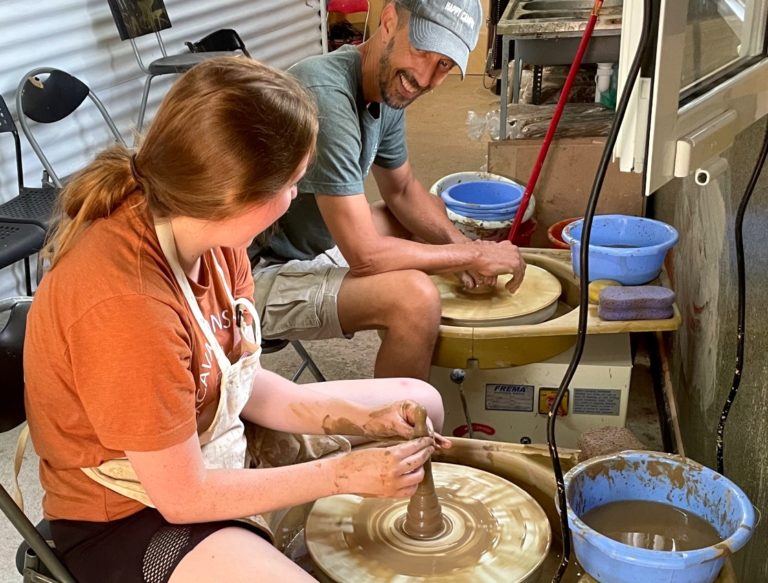Marta Tienda grew up poor in the inner ring suburbs of Detroit. Her mother died when she was 6, but her father assured her life would be better if she worked hard and finished high school.
Tienda listened to her father, an immigrant from Mexico who raised five children in the ‘50s and ‘60s. Alternating between jobs as a factory worker, agricultural laborer, and handyman, her father never lost faith in the power of education to improve almost any circumstance.
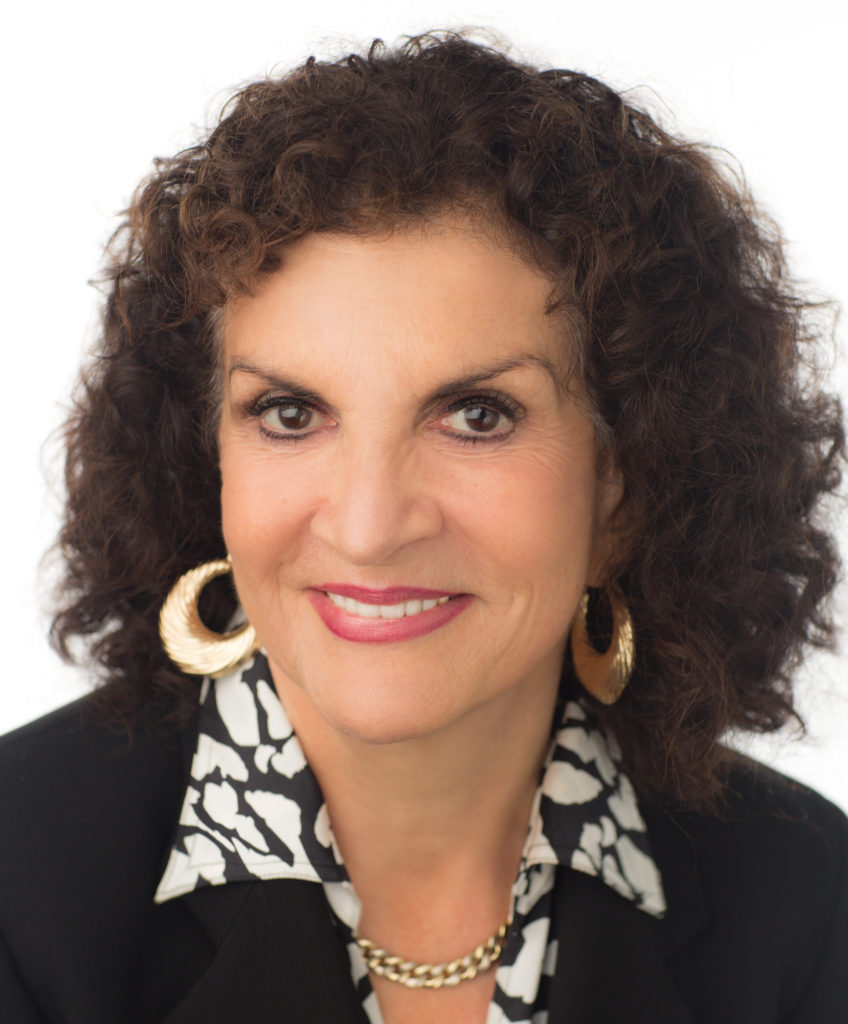
Tienda will deliver the keynote address to doctoral degree recipients at MSU’s 2020 Fall Commencement virtual ceremony. The 1972 alumna of the College of Arts & Letters will challenge graduates to find a social purpose, to use their voice, and to act to support our shared destinies. Tienda compares the social dislocation of the late 1960s to the current turbulence. She reminds her audience that consensus and compromise allowed the nation to heal then and it can again, but only through building on shared destinies.
“That what unites us is so much stronger than the minor differences fostering division,” she noted, quoting the findings of a study by the American Academy of Arts and Sciences of which she is a member.
I don’t regard myself as special What I had was opportunity. I came of age when opportunity was there…The next generation deserves the same commitment to public education that my generation enjoyed. This is a major theme of my recent public lectures
But her research about socioeconomic inequality isn’t about her, said the Professor of Sociology and Public Affairs and Policy and Maurice P. During Professor of Demographic Studies at Princeton University. It’s about the power of education to shape lives.
“I don’t regard myself as special,” she said. “What I had was opportunity. I came of age when opportunity was there. Today, those pathways have narrowed. College is less affordable today because tuition has soared and financial aid has not kept pace with need. The next generation deserves the same commitment to public education that my generation enjoyed. This is a major theme of my recent public lectures.”
The Promise to Commit
Tienda has been on the Princeton University faculty since 1997. Before that, she held appointments at the University of Chicago and the University of Wisconsin – Madison. A leading expert on poverty, migration, and employment among Latinos, she has lectured widely on underinvestment in public education. She holds a bachelor’s in Spanish from MSU, and master’s and doctoral degrees in Sociology from the University of Texas at Austin. She’s published more than 200 scholarly papers, authored and edited more than a half dozen books, and served as a member and trustee for countless foundations. Her research has focused on demographic inequality and access to higher education, a common theme throughout her work.
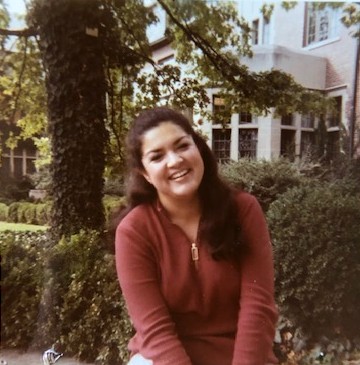
Tienda admits that while her father placed a premium on education, she never thought much about school beyond high school. As a young teen, she dreamed of becoming a beautician. “College was for rich people,” she told her 7th grade teacher. But when her teacher countered that Tienda could go to college on a scholarship, her world changed.
Tienda thought about what her teacher had said when it came time to visit and apply to colleges. She also remembered the support of her neighbor, Lucille, who encouraged her education every step of the way. In 11th grade, Tienda went on a field trip to MSU with the Girls’ Athletics Association (GAA). They ate at the MSU Union, and she remembered slipping a tiny bowl that had served fruit cocktail into her pocket.

“That dish was my promise to commit to enroll,” she said. “I also committed to bringing it back when I was admitted. I got my acceptance letter in November 1967. Unfortunately, the bowl had gotten lost in my chaotic household by then.”
Tienda’s dad drove her to campus her first day in September 1968. And when she showed him her first grades from MSU, he posted them on the bulletin board at his job.
“He didn’t understand the point system of grading. He only knew ‘a’, ‘b’, ‘c’, ‘d,’ but that didn’t matter,” she said. “He was so proud I was going to college.”
Defining Opportunity
While Tienda loved studying Spanish literature, she discovered her passion through a junior year internship where she worked in Alpena certifying migrant farmworkers for food stamps. That job exposed her to legislative issues and their effect on the lives and opportunities of disadvantaged people. The more she learned, the more she wanted to organize and act and effect change. After graduation in March 1972, she landed a job with the MSU Extension Service, developing nutrition programs for Michigan’s growing Hispanic population.
MSU gave me an education. They defined opportunities and gave me chances. And they gave me experiences that forever changed my life.
“The internship and extension job were pivotal for who I became,” she said. “MSU gave me an education. They defined opportunities and gave me chances. And they gave me experiences that forever changed my life.”
Tienda went on to attend the University of Texas at Austin where she switched her focus to sociology and economics. A project about female employment in Mexico led her to further define her expertise in data-driven demographic research, particularly as it relates to Latino populations.
After graduate school, Tienda embarked on a career rooted in research, teaching, and advocacy. She was offered posts at the University of Wisconsin – Madison, and later, the University of Chicago where she engaged in both quantitative and qualitative analyses of people living in poverty.
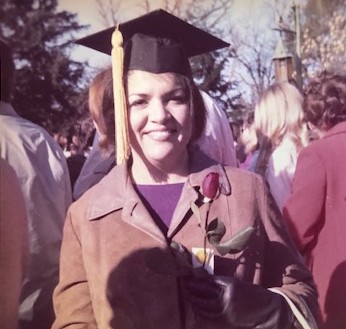
Tienda said a lot of her early work was about defining the attributes that characterize inequality — dimensions like age, national origin, race, and immigrant status. But she wanted to take things further, to move from simply defining the ‘what’ to researching the ‘why’ inequalities arise and persist.
“For me, it’s all about understanding what must be equal for opportunities to be equal,” she said. “Those are the big questions. It’s important to chisel away at these so we can see what kinds of interventions can move the needle.”
Passing the Baton
Although she’s preparing to retire in 2021 at the end of this academic year, Tienda plans to continue her work, just in a different form. Once restrictions lift with COVID-19, she hopes to rejoin the lecture circuit and to persuade communities to reinvest and rebuild public education.
“Opportunity has shrunk in this country,” she said. “That troubles me. My current charge is to look at where mobility is stagnating and where we have to re-energize to reduce inequality, particularly via education.”
Tienda remembers her father’s continual encouragement to finish school. It was a belief fostered in part by his experiences, as well as the commitment he made to Marta’s mother shortly before her death.
I’ve had a great run and was given the opportunity to think beyond academia to how social science applies to the general public. I feel strongly now that it’s important for us baby boomers to step aside and make room for this very talented generation to take our place.
“My mom made daddy promise that we all would graduate from high school,” she said. “They both knew the pain of not being able to go to school and the limits that placed on their lives. They didn’t want that for us.”
Tienda doesn’t want that either for today’s children and is committed to ensuring educational access remains open to everyone. Public education, she said, should not become a private good.
“I’ve had a great run and was given the opportunity to think beyond academia to how social science applies to the general public,” she said. “I feel strongly now that it’s important for us baby boomers to step aside and make room for this very talented generation to take our place.”

